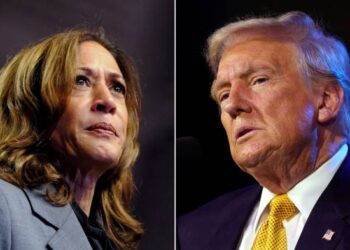So, picture an account, call it Current Account, and one side of the Current Account label “Debit”, on the other side of the scale, label “Credit.”
Debits are Imports and payments made with foreign currency, Credits are Exports and Payments received in foreign currency. When Nigeria sells crude oil, it’s an export, and a $ payment is received. When Nigeria imports cars, $ payments are made. Get the picture?

Here is the relationship, when you import or make a foreign currency payment like Joint Venture cash calls, you debit your Current account, however when you export or earn/receive foreign payments like Petroleum taxes, you credit your Current account.
Let’s assume Nigeria has a net credit or current account surplus. That Current Account surplus flows into Nigeria’s foreign reserves at the CBN. Remember, we sell oil in US Dollars and pay for car imports also in US dollars, thus what hits the reserves are dollars.
Now, the Central Bank of Nigeria (CBN), as the Federation’s bankers, manages the foreign reserves account. The Federation i.e. the Federal, State and Local Governments retain a sharing formula for the US Dollar in the foreign reserves, i.e., the net of exports and imports.
When Nigeria makes export earnings in USD, the CBN exchanges the US Dollars for Naira and retains the US Dollars. Thus, the dollars are owned by the CBN, the Federal and States Naira allocation and is shared via the Consolidated Revenue Fund (colloquially referred to as FAAC).
So, as you can deduce, if exports or forex taxes go up, foreign reserves go up, if imports or forex payments go up, foreign reserves go down (I am being simplistic).
Now to exchange rate, when Nigeria sells oil, she is paid in dollars, but when Nigeria imports, she spends those dollars also. If Nigeria exports more, and earns more US Dollars, there is less pressure on the CBN to supply USD to the market, but if Nigeria imports more, she needs more US Dollars, which puts pressure on the dollars reserves.
Imports mean more US Dollars is needed to fund payments for import. To make Naira rise in value, one way is to reduce imports (or increase exports), because that means fewer dollar requests, making the Naira stronger. Got it?
- We now see a relationship developing…
- More exports mean US Dollar reserves rise, the US Dollar falls, and Naira rises.
- More imports mean US Dollar reserves fall, the US Dollar rises, and Naira falls.
- So, does Nigeria export more than she imports?
[READ MORE: Ghana’s Cedi becomes investors’ delight ahead Nigeria’s Naira)
The answer is Nigeria has net export position, according to the National Bureau of Statistics, as at Q3 2019, Nigeria’s Export-Import figures in N’billion is N5,2885 to N3,8991. However, Nigeria has had a positive current account for years because of overreliance on one main export commodity, crude oil. Yes, non-oil exports are rising but crude oil has guaranteed a positive balance of trade.
So, remember our relationship, “More (oil) exports means US Dollar reserves rise, the US Dollar falls, and Naira rises.”
What happens if oil prices fall or imports rise? Then Nigeria’s revenues from crude oil will shrink. With less US Dollars in the Foreign Reserves, the US Dollar demand rises and Naira will weaken….which is exactly what has been happening recently.
Latest: his is why the CBN is seeking to curb a fall in the foreign reserves and subsequently, a fall in Naira by banning many items from the CBN funded US Dollar market.

What should Nigeria do?
- Speed up reducing petrol imports by local refining PMS and saving forex used in imports of PMS. The available data from the Bureau of Statistics indicates that fuel accounts for over 40% of Nigeria’s total foreign exchange expenditure on imports annually. One commodity, 40%! We have not added rice yet.
- Pass the PIB so that more investors can enter the downstream sectors, build small modular refineries to refine petrol locally. The problem with the petrol subsidy is that petrol is imported, not the subsidy itself. If Nigeria stops importing PMS or scraps PMS subsidy, the value of her currency will rise in relation to the US dollar.
- Don’t just ban imports, go to the local manufactures of soaps, food, textiles, etc. and introduce incentives to drop their costs of production to enable them to compete with foreign imports. E.g., pay them 100% rebate for their cost of diesel, offer them Export Expansion Grants. The goal is to make a locally made bar of soap, for instance, half the price of an imported one.
- Push non-oil exports aggressively, especially agriculture proceeds. It’s not easy but it’s necessary.
- Expand the tax base, diversify government revenues away from sharing oil income.
- Make it far easier for Nigerians to receive remittances from abroad. This will reduce pressure on CBN funds. Remittances to Nigeria from abroad in 2019 was about $25b, far more than FDI and what the Federation shares from oil sales.
- Attract more Foreign Direct Investment and Foreign Portfolio Investment. We have the market, we speak English, we are nearer to Europe and America than Asia. We need to be aggressive and offer incentives to companies to come to Nigeria and invest. One way is to progressively work to improve our score on the “Doing Business in Nigeria” index and eliminating multiple taxation. A company like MTN pays “levies” to Local, state government and Federal governments plus two competing regulators just to set up a telecom mast. Don’t ignore devaluation as a strategy
In Summary, Nigeria is simply paying the price for over-dependence on one main forex generating export. The policy of “get oil, sell oil, and share oil” must stop.
Nigeria should replace it with “get oil, sell oil, pay 10% of gross sales to Sovereign Wealth Fund, then share oil money.” Any future drop in oil prices will create a large deficit because Nigeria has no other savings or forex generator.
It’s our problem, we can fix it.













.gif)







I like the way you explained it all. All the foreign reserve thingy used to sound foreign to me. Now I understand better.
You really simplified the explanation. Kudos
This is easy to understand.. Thank you for breaking it down. This over reliance on Oil is very irritating. Makes us look lazy in our thinking for other source of income.
What a good expkanation
Very elaborate and detailed piece. Well done.
Very detailed explanation. Well done and thank you.
If truly Nigerian government is serious about exporting, it shouldn’t narrow everything on crude oil. Where I work is a private organization that’s into processing of Shea nuts to Shea butter in very large quantity. The company has made over 1000 tonnes of Shea butter and unable to export it due to seaport congestion and this has really affected the company in many ways. If exporting is the major thing that makes our currency to have value, the federal government should encourage the private sectors that’s into production of different things
What a good article. I learnt a lot.
Thank you.
Diversification in economy is the way out. Once this happen, our currency will be more valuable.
Please don’t save any 10% or more of Oil money in SWF because history has proofed AREWA Nigerians will wake up one day and waste it on one civil unrest or religious chaos!
Let every state share use it either to develop their state or squander it on pilgrimage!
As a foreigner with many years of doing business in Nigeria, I find the Nigerian people are charmingand resourceful. Work ethic could be better, but that requires a fair sharing of profits with them as better pay and training, and fewer fat cats forming a nexus that supports each other but ignores the people actually producing value.
This last is where corruption and nepotism play a huge part in damaging the economy. This is for the government to control, without killing capitalism at the same time. Not easy, but that is the leadership which is needed.